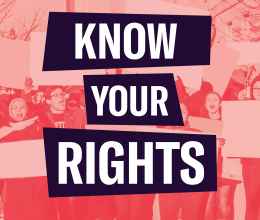Specifically, the Second Appeals Court found that gag orders accompanying national security letters (NSLs) violate the First Amendment; recipients of these warrantless demands for records may be forbidden from speaking about them, without any kind of judicial process:
The appeals court invalidated parts of the statute that wrongly placed the burden on NSL recipients to initiate judicial review of gag orders, holding that the government has the burden to go to court and justify silencing NSL recipients. The appeals court also invalidated parts of the statute that narrowly limited judicial review of the gag orders - provisions that required the courts to treat the government's claims about the need for secrecy as conclusive and required the courts to defer entirely to the executive branch.
"The appellate panel correctly observed that the imposition of such a conclusive presumption ignored well-settled First Amendment standards and deprived the judiciary of its important function as a protector of fundamental rights," said Arthur Eisenberg, Legal Director for the New York Civil Liberties Union.
In this regard, the opinion stated: "The fiat of a governmental official, though senior in rank and doubtless honorable in the execution of official duties, cannot displace the judicial obligation to enforce constitutional requirements."




